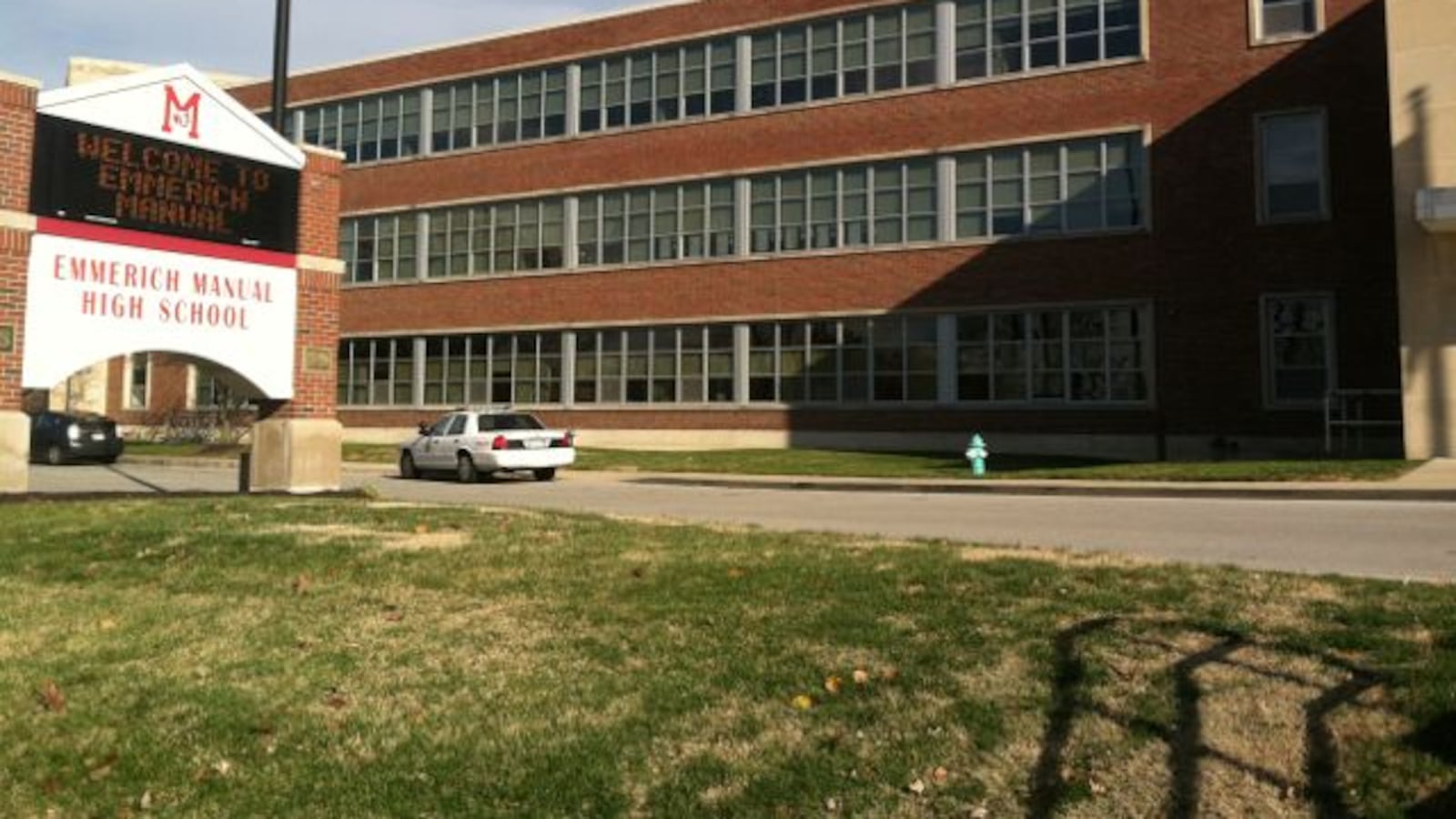Charter Schools USA will maintain control of Howe and Manual High Schools for three more years — a move that means the schools will be spared from imminent closure.
The chronically failing schools were part of Indianapolis Public Schools until they were taken over by the state in 2012. The Indiana State Board of Education hired CSUSA, a for-profit charter manager out of Florida, to turn around the schools. In the years since, they have made middling progress.
The board voted 9-2 to extend the contract with CSUSA to 2019-2020, two years later than it was expected to end. The contract at another takeover school, Emma Donnan Middle School, was already extended until 2020 as part of a plan that created an innovation elementary school on the campus in partnership with IPS.
Board members Gordon Hendry and Steve Yager voted against the contract extension. But some other board members staunchly supported giving CSUSA more time to turn around the schools.
“I think the results are remarkable,” said board member David Freitas. “Why wouldn’t we support remarkable results?”
That was a sentiment echoed by Jon Hage, the CEO of CSUSA, who said “the results have been pretty good over the last five years.”
But the data is not entirely sunny. Last year, students showed improvement on early assessment data the manager shared with the board. Yet, all of the Indianapolis takeover schools managed by CSUSA are getting Fs on the state accountability system. The new elementary school that CSUSA began in partnership with IPS is rated D, but it is also one of the worst performing schools in the district, according to an IPS analysis.
Hage said CSUSA is revamping its approach. That includes establishing an Indiana team to manage the schools and a nonprofit to oversee them. CSUSA is also working with Peggy Hinckley, a former superintendent who is also leading the takeover of Gary schools.
“In hindsight, there’s probably better ways to do turnaround in the future,” Hage said, “but doing nothing would’ve been a failure too.”
State superintendent Jennifer McCormick voted for the contract extension, but she was tepid in her assessment of CSUSA’s progress.
“Are they exactly where we want them to be? No. … They have a long way to go, but at least they are showing an upward movement,” she said. “Their trend data shows improvements.”
The decision to extend the contract for CSUSA means the schools are likely to remain open for at least three years. That contrasts with a plan released by the IPS administration, which recommends closing Howe and Manual if they are returned to the district’s control.
There were no IPS representatives at the meeting of the state board Wednesday, and some board members argued they should delay the vote until hearing directly from the administration. But ultimately, they did not wait for IPS input.
The IPS proposal to close Howe and Manual is part of a broad plan to reconfigure high schools across the district, which the IPS board is expected to vote on in September. Because some of the schools involved are in state intervention, the district will need support from the state board.
The school closing plan is designed to reduce costs in the cash-strapped district, where high schools are less than half full.
That’s a problem also facing the schools managed by CSUSA, which are vastly underutilized, said Hage. But he argued the decision on the future of the schools should not be made yet.
Putting off the decision is costly, however. The schools receive about $1,500-$3,300 per student extra from the state, said McCormick.
“When you look at those additional dollars, you are hoping you are getting your bang for your buck,” she said. “Anytime you are putting millions of dollars behind something, you obviously have your eyes on it.”

